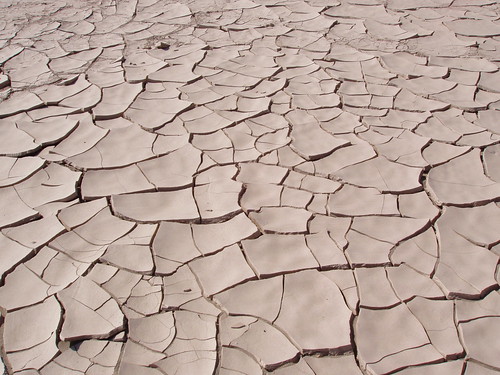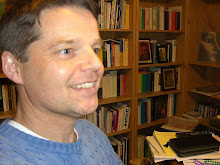The only thing I like better than looking at babies is holding them. Earlier this month, I drove to Lebanon to meet Jack McLaughlin, and I got to hold him because he was waking up anyway. I also got to hear him, because something was bothering him and he made it known.
Little Jack made me wonder what we do when something is bothering us before we are born – we cant scream in the womb. Little Quinn suggested that, in the womb, nothing can bother us – food comes to us, steady as our mother’s heartbeat; all other noises are muffled, the temperature is always right, we just curl up in the water and float in complete happiness – until the water breaks, that is. Then it’s gravity and bright lights, cold air, strange sounds and voices, and – very soon – hunger. But being born also means being welcomed by parents who hold us, feed us, whisper in our ears, keep us safe and warm, and respond to our presence with love and care.
 It may well be the fact that we spend the first weeks and months of our existence immersed in water like fish in the ocean, that we have this life-long attraction to water. There’s nothing like soaking in a hot tub when your muscles are sore – or your soul. You just float in memories of complete happiness, and the tensions melt, the muscles relax, and your soul sings songs of joy and peace.
It may well be the fact that we spend the first weeks and months of our existence immersed in water like fish in the ocean, that we have this life-long attraction to water. There’s nothing like soaking in a hot tub when your muscles are sore – or your soul. You just float in memories of complete happiness, and the tensions melt, the muscles relax, and your soul sings songs of joy and peace.We love water; the pleasure of splashing and swimming and jumping in puddles; the satisfaction of a drink of cold water on a hot day; the calming sound of rain on the roof; the fun of water slides and snorkeling; the beauty of rivers, lakes, and water falls; the sound of waves rolling up on the beach; the fragrance of the earth after a gentle summer rain. We love water – it flows through our bodies, it freshens our tired spirits and revives our souls.
Jesus was baptized in a river, and he did much of his teaching by the lake, the Sea of Galilee. When the crowds who gathered to hear him got larger and larger, he asked his disciples to have a boat ready for him, so he could pull away from the shore and teach from the boat.
People heard his parables with the sound of water in the background, little waves lapping up onto the pebbles and rocks. People listened to his teaching while looking at the vast, open stretch of sea and sky. I don’t know if it was as beautiful a scene as I imagine it, but to me sitting by the water’s edge and listening to Jesus are two of my favorite things.
On that day, when evening had come, Jesus said to the disciples, “Let us go across to the other side,” and leaving the crowd behind, they took him with them in the boat, just as he was.
Most of the people on the beach had gone home, they had things to do, meals to prepare, the kids had to get ready for bed; but some stayed and watched the boat go east.
“What business does he have going over there,” they wondered, “it’s all Gentiles on the other side, it’s unclean, full of unholy spirits. It’s not our people over there, not his people, what business does he have going over there?” Dark clouds were moving in, casting deep shadows on what had been a beautiful day on the beach.
Meanwhile, in the boat, the disciples were enjoying the evening breeze and quiet. It had been a long day, they were tired, and the gentle rocking of the boat almost put them to sleep.
But then the wind picked up; dark clouds began to build up behind them, and soon the storm broke lose. The waves beat into the boat, and it was being swamped. Some of the disciples were fishermen; they were accustomed to wind and waves, but nothing like this. Chaos had been unleashed, the raging wind whipping the water into a frenzy of waves and whirls – their little boat nothing but a nutshell.
The disciples got to see water’s other side, they saw that which makes us build fences around our pools, and wear life jackets in our boats, and stay close when our little ones are in the tub, long after they have learned to sit on their own. There’s danger in the water, and we better learn to respect it, because the moment we learn to breathe, we can drown.
The disciples knew that, they knew the danger of capsizing and going down into the deep. But they didn’t know Jesus. They saw him, curled up on a cushion, sleeping like a baby, a perfect picture of peace in the midst of the storm. They woke him, saying, “Teacher, do you not care that we are perishing?”
Now why do you think they woke their teacher? Did they want to hear one last story before the boat went down? That seems unlikely. Did they need him to help them get the water out of the boat or hold the rudder? If they did, why didn’t they say so or hand him a pail? To me it sounds like they were anxious and they couldn’t stand that he didn’t seem to be the least bit troubled. “Do you not care that this little boat is going down and all of us with it?” They were frantic and the fact that he wasn’t made it worse.
Jesus woke up; Mark doesn’t even mention if he got up from the cushion. He woke up and rebuked the wind and the sea.
“Quiet! Be still!”
And it was so.
He spoke and it came to be.
He made the storm be still, and the waves of the sea were hushed.
Dead calm.
Can you see the disciples? They are sitting down, wide-eyed, barely breathing, their hands clenching the wall of the boat with white knuckles. Before, they were anxious, now they are afraid.
Jesus said to them, “Why are you afraid? Have you still no faith?”
There is a popular reading of this story where Jesus isn’t rebuking the wind and the waves, but the disciples for being afraid in the storm. According to that reading, we ought to always remember, no matter how high the waves, how violent the winds, that Jesus is in the boat with us – and that we shouldn’t be afraid, and if we had faith, we wouldn’t be afraid. According to that reading, we ought to tie ourselves to the mast of the cross with ropes of faith and laugh at the storm.
I believe this is dangerous nonsense, because the next time your little boat gets hit by a storm, and you know it will, you’ll be afraid, and on top of everthing else, you’ll feel guilty for being afraid. As if fear wasn’t enough.
Jesus didn’t rebuke the disciples, he commanded the wind and the waves to be still. He spoke, and the violent force of chaos was tamed.
Remember, the whole trip was his idea, “Let us go across to the other side,” he said. This was no evening cruise to a restaurant on the other side of the bay. He took them out to sea, away from the familiar coast, away from the land they knew, to the land of the Gentiles. Why? Because demons ruled on the other side and Jesus invaded their territory to proclaim and bring the kingdom of God. Because sin and death ruled on the other side and Jesus crossed over to bring forgiveness, healing, and wholeness to life. This was no pleasure cruise, this was D-day. Little wonder the forces of chaos tried to stop them with waves bucking like bulls and wind gusts strong enough to break everything in their path.
Jesus’ life and mission is one dangerous crossing after another. His presence, his teaching, his actions lead to confrontation between entrenched powers and the reign of God; confrontation between the way things are and the way they are to be. The truth is, when Jesus is near, the storms aren’t far.
But when Jesus speaks, the eternal word that spoke light and life into being is present. When Jesus speaks, we hear the One who shut in the sea with doors when it burst out from the womb; who made the clouds its garment, and thick darkness its swaddling bands;who prescribed bounds for it, and set bars and doors, and said, “Thus far shall you come, and no farther, and here shall your proud waves be stopped.”
The truth is, the disciples in the boat were not half as afraid of the storm as they were of Jesus’ authority to tame its power. They were afraid because it finally dawned on them that they hadn’t taken him into the boat with them; Jesus had taken them into the boat with him, and this ride to the other side was the invasion of enemy territory by the forces of grace, forgiveness, healing and wholeness.
“Why are you afraid?” he asked, “Have you still no faith?”
Our Bible translation is very kind, saying, “They were filled with great awe,” when the words can also be translated, “they feared with great fear.”
They were afraid because they began to see that this boat was going to keep crossing to the other side, and that neither death nor life, nor things present, nor things to come, nor powers, nor anything else in all creation would be able to stop it before its journey was complete.
“Who then is this,” they said to one another, “that even the wind and the sea obey him?”
They stayed in the boat with him, as they were, with their great fear and their little faith, and they sailed all the way to Easter, all the way to the shore where life in fullness is at home.
Audio of this post








